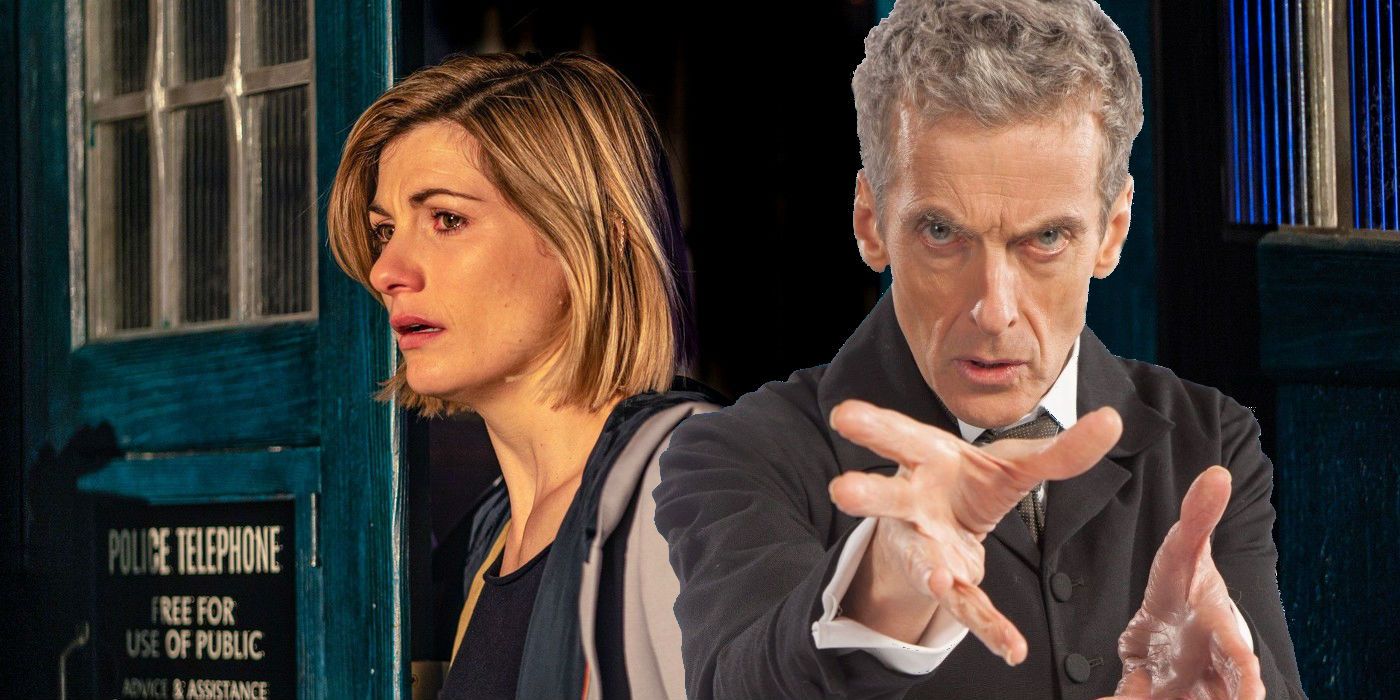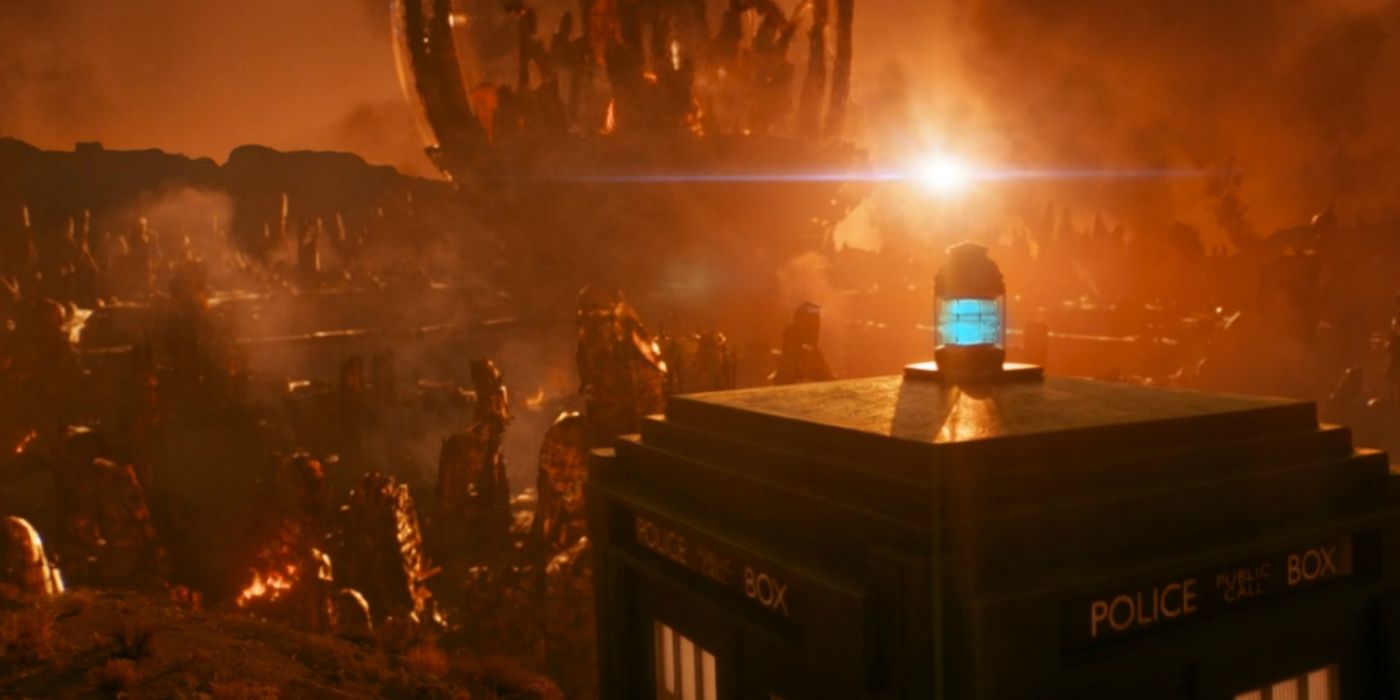Is there a reason Doctor Who keeps destroying and regenerating the planet Gallifrey? The home of the Time Lords managed to stay relatively intact during the entirety of the classic series, but things have been a little more complicated since Doctor Who returned in 2005. When Russell T. Davies brought the Doctor back, he introduced the concept of the Time War - a devastating conflict between the Time Lords and the Daleks that took place prior to the Ninth Doctor's debut. In order to end the war, both species (supposedly) had to be destroyed, leaving the Doctor as (again, supposedly) the last of his kind.
The Davies era had already started slackening up the destruction of Gallifrey, first by revealing the Master and then by having Timothy Dalton's Rassilon and his cohorts temporarily break their way out of the Time War. When Steven Moffat replaced Davies, he took those threads and ran, with the 50th anniversary episode shocking viewers by confirming Gallifrey had been safe all along within a bubble universe. Capaldi's Twelfth Doctor managed to eventually find his way home, but the 2-part premiere of season 12 (now under the leadership of Chris Chibnall) changed the game again, revealing Gallifrey had been destroyed by the Master in anger after he found out the secret of the Timeless Child.
In recent years, Gallifrey has been blown up and rebuilt more than K-9, but this isn't just a case of short-term planning and poor continuity. Instead, it appears that Doctor Who showrunners see Gallifrey as an integral but expendable part of the show's mythology - something intrinsic in the Doctor's character that can be altered without consequence.
Gallifrey is an instantly recognizable name to even the most casual Doctor Who fan. Both the planet and its Time Lord residents are a key part of the Doctor's background and have a rich history dating all the way back to when Doctor Who was in black and white. However, Gallifrey is also one of the few key building blocks of Doctor Who that can be removed without the tower falling down. Two whole iterations of the Doctor passed before Gallfrey even came into play, and large chunks of the classic series went by without any appearances from Time Lords who weren't the Master. Meanwhile, the Time War proved that the Doctor didn't need his home planet for the show to succeed in the contemporary era.
On the other hand, virtually every other recognizable element of Doctor Who is absolutely necessary. The TARDIS facilitates each adventure, the sonic screwdriver is too useful a plot device, regeneration allows new actors to come in, the Daleks are too popular to be destroyed and companions are needed for exposition. The only major part of the Doctor's character that can be chopped around without damaging the show is her background - Gallifrey. This is perhaps why each showrunner has changed the planet's fate; to put their mark on the series without fundamentally changing Doctor Who's nature. To give the appearance of doing something drastic, without actually doing something drastic.
In many ways, this tactic works. The Time War, Gallifrey's triumphant 50th anniversary return and the Timeless Child incident all got fans excitedly discussing possible outcomes and ramifications, and each occasion felt monumental when it occurred. Even now, the Timeless Child arc is the most exciting part of Doctor Who, and Gallifrey's destruction helped build towards that. The Master blew up his own planet because of this secret, it has to be something huge. Thus, Gallifrey has served its purpose, sacrificed to serve a bigger storyline.
However, the constant death and rebirth of Gallifrey also comes with a measure of disappointment, as modern Who hasn't yet tapped into the planet's potential as a setting in the present. Modern Doctor Who has hugely expanded Time Lord mythology, but has spent precious little time on Gallifrey itself, while some of the classic series' best adventures occurred when the Doctor visited home. The Timeless Child will undoubtedly add more to Gallifrey's story, perhaps something genuinely groundbreaking, but viewers might have to wait for Chibnall's replacement before the planet is revealed to have survived all along.
Doctor Who season 12 continues with "Nikola Tesla's Night Of Terror" January 19th on BBC and BBC America.


